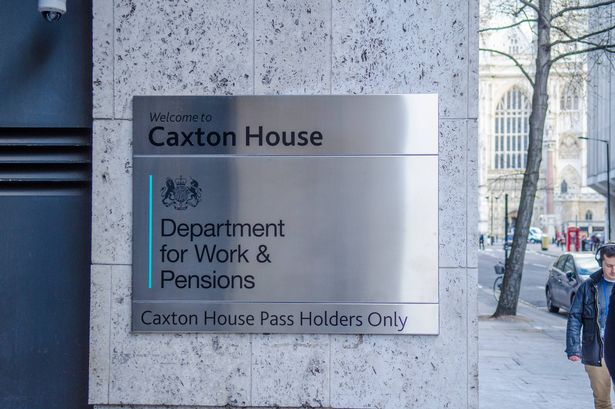Health
DWP Urged to Consider Earlier Increase in State Pension Age

The Department for Work and Pensions (DWP) is facing pressure to adjust the state pension age sooner than previously planned. A report commissioned by the Labour Party suggests that the age at which individuals can claim their state pension should be raised to 69 in a more immediate timeframe, as the government evaluates existing regulations.
Baroness Neville-Rolfe, who contributed to the report, stated, “Current projections of GDP and state pension-related expenditure suggest that state pension age should rise to age 69 over the period 2046-48.” She emphasized the need for a reassessment of this potential increase during the next review of the state pension age, particularly in light of updated fiscal data and life expectancy forecasts.
The proposal also includes raising the state pension age to 68 between 2041 and 2043, which would mean expediting the current schedule for the age increase. This change is intended to address the sustainability of the state pension system in the long term.
Mark Pemberthy, benefits consulting leader at the consultancy group Gallagher, highlighted the complexities involved in managing the financial implications of state pensions. He noted that limiting state pension costs as a percentage of GDP hinges on various factors, including economic performance and the speed at which the pension age is raised annually. He added, “The triple lock will not be part of the state pension age review but must be a consideration in the wider pension review if pensions are going to be sustainable for future generations.”
Baroness Neville-Rolfe’s report outlines several critical elements that should guide the determination of the state pension age schedule. These factors encompass sustainability, affordability, and intergenerational fairness. The report’s recommendations are predicated on two key metrics: the expectation that individuals should ideally spend no more than 31% of their adult life in retirement, and the government should aim to cap state pension-related expenditure at 6% of Gross Domestic Product (GDP).
Should these guidelines be adopted, the implications for future retirees could be significant. The DWP is expected to take these suggestions into consideration as it navigates the evolving financial landscape and prepares for the upcoming review.
As discussions continue, the Labour Party and its advisors are advocating for these changes to ensure that the pension system remains viable for future generations while addressing the immediate needs of the current economy.
-

 Health3 months ago
Health3 months agoNeurologist Warns Excessive Use of Supplements Can Harm Brain
-

 Health3 months ago
Health3 months agoFiona Phillips’ Husband Shares Heartfelt Update on Her Alzheimer’s Journey
-

 Science1 month ago
Science1 month agoBrian Cox Addresses Claims of Alien Probe in 3I/ATLAS Discovery
-

 Science1 month ago
Science1 month agoNASA Investigates Unusual Comet 3I/ATLAS; New Findings Emerge
-

 Science4 weeks ago
Science4 weeks agoScientists Examine 3I/ATLAS: Alien Artifact or Cosmic Oddity?
-

 Entertainment4 months ago
Entertainment4 months agoKerry Katona Discusses Future Baby Plans and Brian McFadden’s Wedding
-

 Science4 weeks ago
Science4 weeks agoNASA Investigates Speedy Object 3I/ATLAS, Sparking Speculation
-

 Entertainment4 months ago
Entertainment4 months agoEmmerdale Faces Tension as Dylan and April’s Lives Hang in the Balance
-

 World3 months ago
World3 months agoCole Palmer’s Cryptic Message to Kobbie Mainoo Following Loan Talks
-

 Science4 weeks ago
Science4 weeks agoNASA Scientists Explore Origins of 3I/ATLAS, a Fast-Moving Visitor
-

 Entertainment4 months ago
Entertainment4 months agoLove Island Star Toni Laite’s Mother Expresses Disappointment Over Coupling Decision
-

 Entertainment3 months ago
Entertainment3 months agoMajor Cast Changes at Coronation Street: Exits and Returns in 2025









